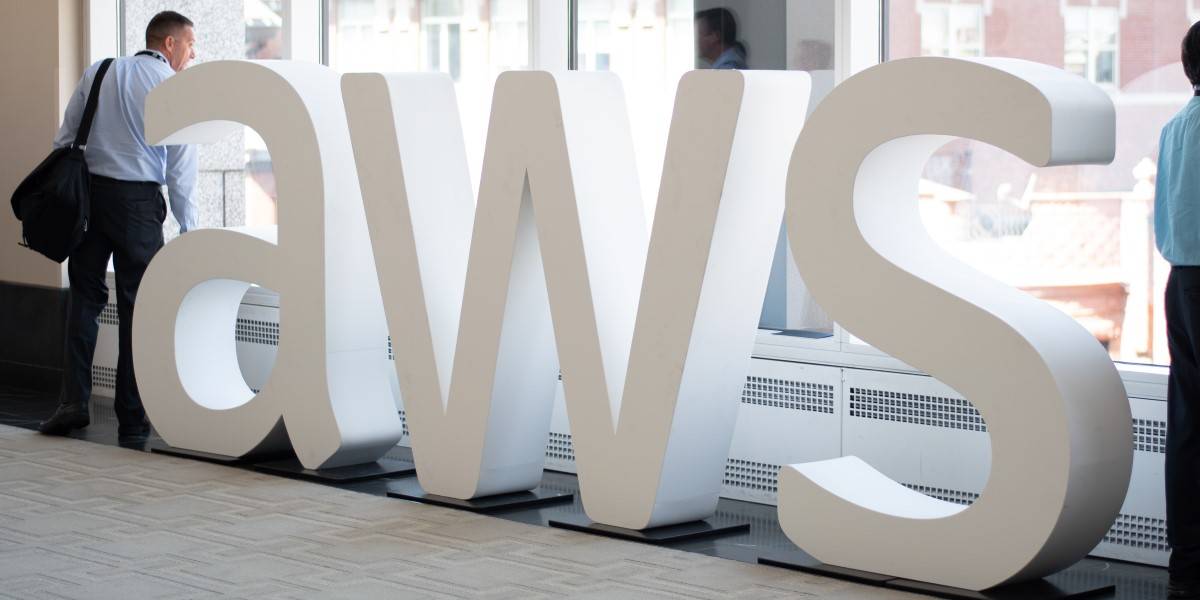AWS Must Fork Out $30.5M After Losing P2P Network Patent Scrap

A Delaware jury has determined that Amazon Web Services infringed two networking patents and now owes the current patent holder $30.5 million.
The jury returned its decision [PDF] on Friday, finding that AWS' CloudFront content delivery network ripped off two 2000-era patents (US 6714966 and 6732147) originally developed by Boeing but now owned by Acceleration Bay, an outfit described by its founder as "an incubator and investor" that "creates ventures based on inventions by large multinational corporations."
Amazon was found to have not only infringed the two patents, but also done so willfully, which could lead to enhanced damages, potentially including trebling, depending on the court's final judgment next month. On the other hand, the internet giant's cloud service alone brings in about $9 billion in operating profit a quarter so we're sure it can afford even a hundred million to make this go away.
"Acceleration Bay is really appreciative for the jury and the judge for their service in the case," company president Joe Ward told The Register. "We believe the willful infringement was the right outcome and a win for inventors."
The patents that AWS was determined to have infringed both involve methods of streamlining data delivery across a network, seemingly in a peer-to-peer manner. The '966 patent "is generally directed towards systems providing an information delivery service using a regular network," the complaint [PDF] stated, "but sending data through neighbor participants."
The '147 patent, meanwhile, "is generally directed towards methods and systems for leaving a broadcast channel … by sending messages to a second computer, so that the second computer can connect to a third computer to maintain a regular network," per the complaint. A peer-to-peer network focused on broadcasting information to many nodes, basically.
The combination of patents alleged in the suit, which included three others that weren't listed in the jury instructions, allows for the creation of an "m-regular, incomplete network" between nodes that is designed to reduce congestion when there are a large number of connections. By incomplete, they mean the info can flow around broken or slow connections.
Acceleration Bay gave an example of this setup:
Yeah.
Technology like that is used in a lot of places, we imagine, including online gaming. Acceleration Bay has been especially litigious in that latter space, having recently won $23.4 million in damages from Activision Blizzard after asserting the gamemaker used two of its patents (including the '147 patent) to enable multiplayer elements of the Call of Duty series of shooters and World of Warcraft, its venerable online RPG.
- Open source orgs strengthen alliance against patent trolls
- Remember Nokia? Amazon's lawyers do, in patent infringement suit
- Cloudflare defeats another patent troll with crowd-sourced prior-art army
- AWS must pay $525M to cloud storage patent holder, says jury
That said, Acceleration Bay has also lost cases asserting some of the very same patents at issue in the AWS and Activision matters, with a judge dismissing similar arguments against Electronic Arts and Take-Two Interactive in 2022 and 2020, respectively.
In a blog post announcing Take-Two's victory, lawyers for the Grand Theft Auto and NBA 2K maker described Acceleration Bay as a "patent assertion entity" - a nice way of saying "patent troll" - and noted the judge ruled it didn't use the network topology patents that Acceleration Bay claimed it did.
Acceleration Bay made similar video game-related arguments in its AWS case, accusing Amazon of using its patents without permission in the creation of gaming products including Lumberyard, Luna, O3DE, Twitch, Gamelift, and Gridmate. Other Amazon products Acceleration Bay said infringed its patents included AWS more generally: EC2, EKS, CloudFront, VPC Peering, App Mesh, and Lambda. Only CloudFront was mentioned in the jury verdict.
Amazon argued that its various technologies worked differently than the patents owned by Acceleration Bay, and that it had permission from Boeing to use the patents in the case. Amazon has so far not commented on the trial's outcome. ®
From Chip War To Cloud War: The Next Frontier In Global Tech Competition
The global chip war, characterized by intense competition among nations and corporations for supremacy in semiconductor ... Read more
The High Stakes Of Tech Regulation: Security Risks And Market Dynamics
The influence of tech giants in the global economy continues to grow, raising crucial questions about how to balance sec... Read more
The Tyranny Of Instagram Interiors: Why It's Time To Break Free From Algorithm-Driven Aesthetics
Instagram has become a dominant force in shaping interior design trends, offering a seemingly endless stream of inspirat... Read more
The Data Crunch In AI: Strategies For Sustainability
Exploring solutions to the imminent exhaustion of internet data for AI training.As the artificial intelligence (AI) indu... Read more
Google Abandons Four-Year Effort To Remove Cookies From Chrome Browser
After four years of dedicated effort, Google has decided to abandon its plan to remove third-party cookies from its Chro... Read more
LinkedIn Embraces AI And Gamification To Drive User Engagement And Revenue
In an effort to tackle slowing revenue growth and enhance user engagement, LinkedIn is turning to artificial intelligenc... Read more

